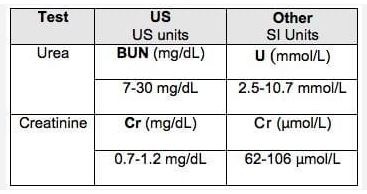Urea and Creatinine Levels in the Human Body
"Explore urea and creatinine levels in the human body. Understand their roles, significance, and how levels impact health and kidney function. #urea and creatinine


Introduction
In order to maintain good health, it is important to understand the levels of certain substances in our body, such as urea and creatinine. These two compounds are waste products that are produced during normal bodily functions. Monitoring and balancing their levels is crucial for overall well-being. In this article, we will explore what urea and creatinine are, their percentage levels in the human body, and how to maintain a healthy balance. We will also discuss some foods that should be avoided to prevent an excessive intake of these compounds.
What is Urea?
Urea is a waste product that forms when proteins in the body are broken down. It is primarily produced in the liver and then transported to the kidneys for excretion in urine. Urea is a vital component of the body's waste removal system and helps maintain the balance of fluids and electrolytes. The normal range of urea in the blood is between 7 and 20 mg/dL.
What is Creatinine?
Creatinine is a waste product that is produced by the muscles during their normal metabolism. It is filtered out of the blood by the kidneys and excreted in urine. Creatinine levels are a key indicator of kidney function. The normal range of creatinine in the blood varies depending on factors such as age, sex, and muscle mass. In general, the normal range for males is between 0.6 and 1.2 mg/dL, while for females it is between 0.5 and 1.1 mg/dL.
Maintaining Balance
Keeping urea and creatinine levels within the normal range is essential for optimal health. Here are some tips to help maintain a healthy balance:
1. Stay Hydrated
Drinking an adequate amount of water helps flush out waste products from the body, including urea and creatinine. Aim to drink at least 8 glasses of water per day, or more if you engage in strenuous physical activity or live in a hot climate.
2. Follow a Balanced Diet
Eating a well-balanced diet that includes a variety of fruits, vegetables, whole grains, lean proteins, and healthy fats is important for overall health and can help maintain normal urea and creatinine levels. Avoid excessive consumption of processed foods, as they may contain high levels of sodium and other additives that can put strain on the kidneys.
3. Limit Protein Intake
Since urea is produced when proteins are broken down, it is important to consume protein in moderation. While protein is an essential nutrient, excessive intake can lead to increased urea production. Consult with a healthcare professional or a registered dietitian to determine the appropriate amount of protein for your individual needs.
4. Exercise Regularly
Regular physical activity helps maintain muscle mass and can contribute to healthy creatinine levels. Engage in activities such as walking, jogging, swimming, or strength training for at least 30 minutes a day, most days of the week. However, if you have any underlying health conditions, it is important to consult with your healthcare provider before starting any new exercise regimen.
5. Avoid Smoking and Excessive Alcohol Consumption
Smoking and excessive alcohol consumption can have negative effects on kidney function and can contribute to increased levels of urea and creatinine. Quitting smoking and limiting alcohol intake can help maintain a healthy balance.
Foods to Avoid
While a balanced diet is important, there are some foods that should be avoided or consumed in moderation to prevent an excessive intake of urea and creatinine. These include:
1. High-Protein Foods
Foods that are high in protein, such as red meat, poultry, fish, and dairy products, can increase urea and creatinine levels. It is important to consume these foods in moderation and balance them with other nutrient-rich options.
2. Processed Foods
Processed foods often contain high levels of sodium, additives, and preservatives, which can put strain on the kidneys and contribute to increased urea and creatinine levels. Opt for fresh, whole foods whenever possible.
3. Foods High in Sodium
Excessive sodium intake can lead to fluid retention and increased strain on the kidneys. Avoid or limit the consumption of foods that are high in sodium, such as processed meats, canned soups, and fast food.
4. Alcohol and Caffeine
Alcohol and caffeine can have a dehydrating effect on the body, which can impact kidney function. Limit the consumption of alcoholic beverages and caffeinated drinks like coffee and tea.
Conclusion
Maintaining a healthy balance of urea and creatinine is crucial for overall well-being. By following a balanced diet, staying hydrated, exercising regularly, and avoiding certain foods and substances, you can help keep these waste products within the normal range. However, it is important to consult with a healthcare professional for personalized advice and guidance based on your individual health needs.
